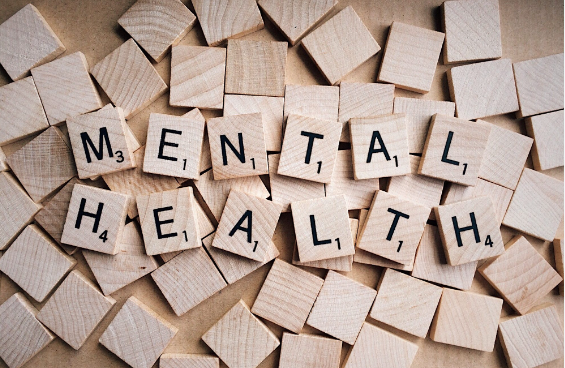Life itself is an algorithm for some people. They use it to navigate through challenges and difficulties they may face in life and often notice their flaws less than others since they are always in a position to move forward; never staying in one place for long in order to achieve their goals. But, for others, people may take a heuristic approach, which is a quicker, less accurate approach for people trying to push through their problems rather than really try to realize the root of the problem itself. Now, these two approaches may seem relatively straightforward and simple but when thinking about it, what kind of effect would the wrong approach have on someone’s mental health when in accordance with their diet, weight and social life? Now that is the question.
Eating disorders are often linked to a heuristics approach, “the quick fix”—the belief that eating less than what’s needed can quickly lead to rewarding results. For some, this approach even brings a sense of euphoria, making them ignore the serious health risks involved. The constant push to reach a specific “goal weight” and see immediate results can often lead to negative outcomes. Many people are able to build a healthy routine around weight loss: they wake up, go to the gym, eat balanced meals, and even enjoy the occasional treat, all while still feeling in control and not punishing themselves for enjoying themselves in the moment. But, for some with eating disorders, the fear of weight gain keeps them trapped in a cycle of strict calorie restriction. For them, even the idea of eating in a possible calorie surplus can feel overwhelming, leading to consequences that only worsen over time.
Though many may think it’s common or even healthy to have this mindset—believing that “just caring about your body” or “eating well should be a lifestyle”—this approach can lead to serious consequences. A small choice in the wrong direction, like “accidentally” skipping a meal, can set off a cycle of mental decline for some people. Simple thoughts like “Oh, I skipped breakfast, it’s no big deal” or “I ate a big lunch, so I don’t need dinner” can easily become a habit without them realizing it. The ease with which one can slip into these patterns makes it even harder to stay motivated toward healthier goals. Often, people end up relying on unhealthy shortcuts instead of building habits that truly benefit them in the long run.
As a result of poor nutrition and improper dieting, people can experience a decline in cognitive functioning, muscle mass deterioration, fatigue, and social-emotional stress. These consequences are especially severe when considering the impact on their relationships. In psychology, the importance of social interaction is best understood through the sociocultural approach, which suggests that our behaviors, interactions, and even perceptions are shaped by the environment around us. When applied to eating disorders, this approach shows how the drive to restrict or control eating often leads people to withdraw from social situations. For example, imagine failing a math test, and despite your friends inviting you to hang out, you instead isolate yourself, choosing to binge-eat in an attempt to cope with the low grade you had received which could be in correlation to the low cognitive functioning you are experiencing. This behavior ultimately results in self-isolation, as you cancel plans with your friends and retreat due to guilt over eating. In your mind, you might feel like you’ve ruined your day and need time to recover. However, from the perspective of those around you, this behavior may appear as if you’re distancing yourself, leading them to feel hurt or confused. Over time, this can damage relationships, as others may perceive your actions as a lack of trust or commitment to the friendship. Despite being in the same situation, everyone perceives things differently, influenced by their personal experiences and the way they interpret the circumstances.
In life, we often find ourselves unable to control many situations. Despite being constantly aware of our own existence, we don’t always have the best coping mechanisms to deal with the challenges we face—whether they are healthy or unhealthy. People, at their core, seek security and stability, which makes it incredibly difficult to find peace in a disorder that only brings misery and isolation. The idea of self-control in such a disorder is ultimately meaningless; once you lose control, you lose a part of yourself each time. In the end, you end up losing far more than you gain. The stigma surrounding the disorder only worsens the situation, often making it feel more normalized than it truly is.
Around 30 million Americans will experience an eating disorder at some point in their lives. Sadly, about 10,200 people die from these conditions each year, and individuals struggling with eating disorders are 5 to 6 times more likely to die compared to those who aren’t affected. What’s often most overlooked in these situations is that eating disorders are not just a physical struggle but a deep mental health issue as well. Over time, the chances of recovery decrease, especially if the disorder isn’t addressed early on. The mental aspect of these diseases often distorts a person’s thinking, making it difficult for them to seek help or recognize the need for it.






